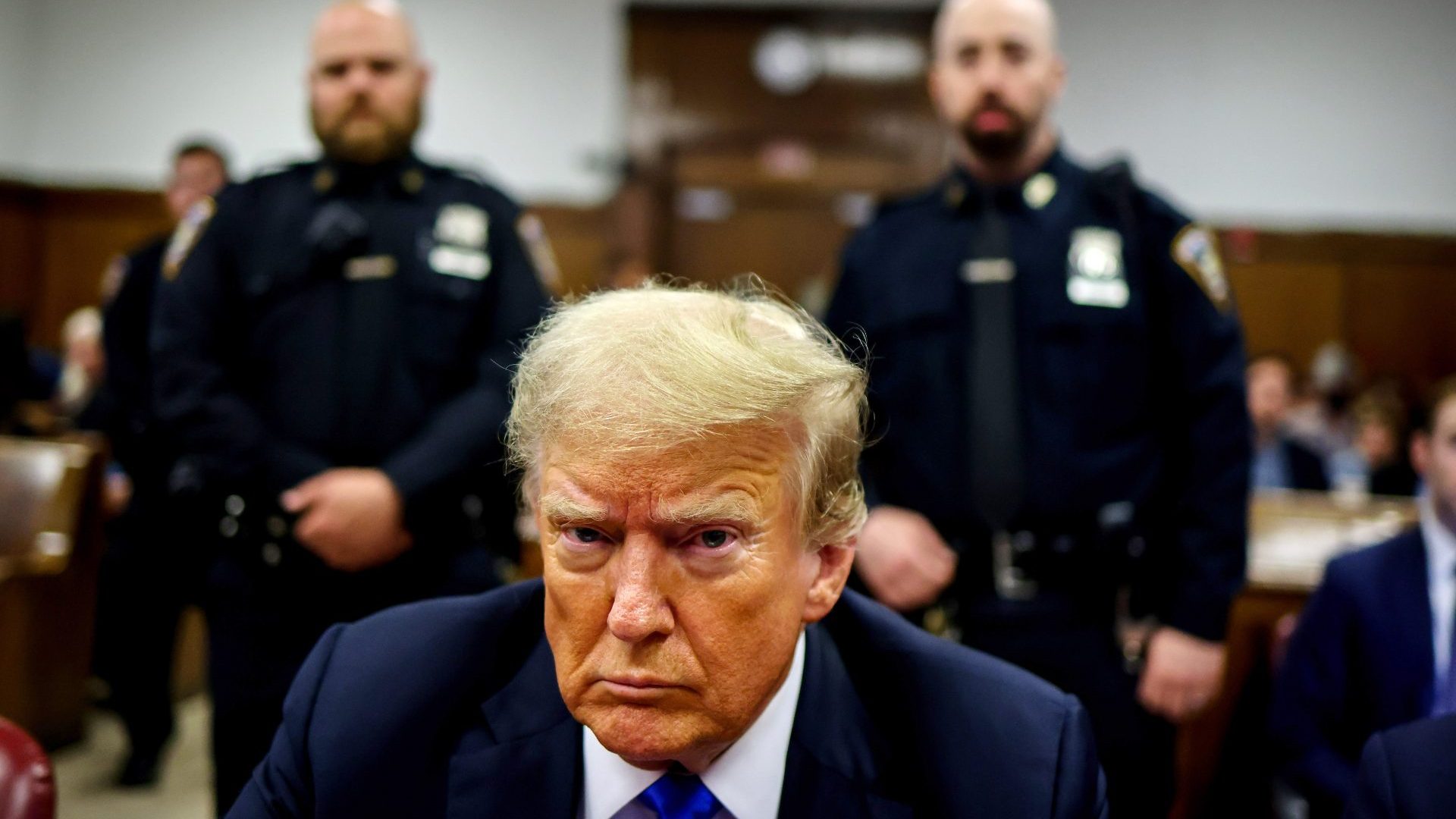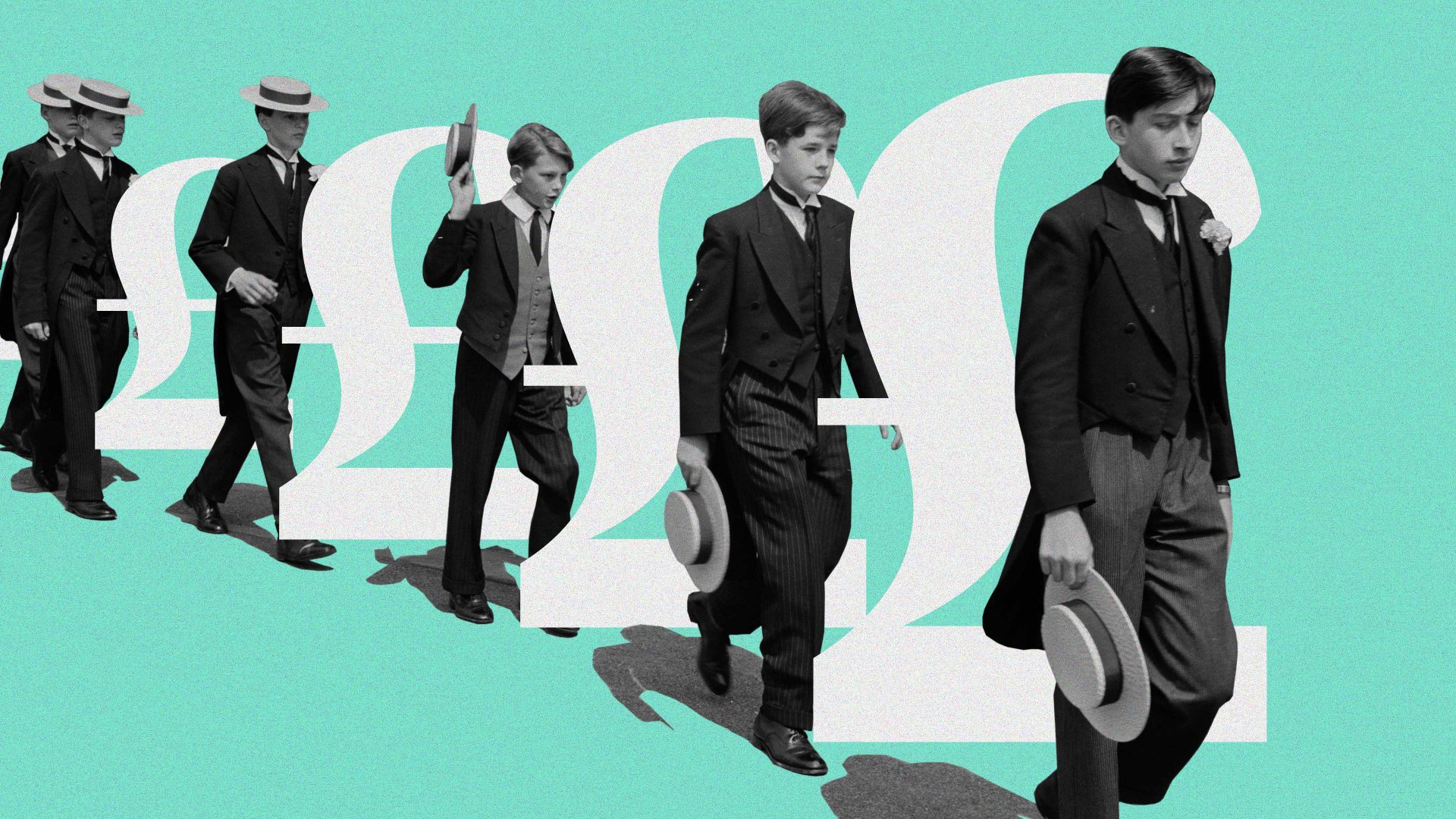“There are worse things than jail. There is no telephone there. There is, instead, peace. A hard table to write on. The best political writing in this century has been done from jail.”
So said Richard Nixon in the early hours of August 9, 1974; the day that he resigned the presidency. In the event, he was spared prison by the “full, free, and absolute pardon” granted to him – contentiously – by his successor, Gerald Ford, who declared that the prosecution of Nixon “would seriously disrupt the healing of our country from the great wounds of the past”.
Half a century later, a former president has been convicted by a New York jury of 34 felony charges and faces jail time. I very much doubt that, if incarcerated, Donald Trump will follow Nixon’s suggestion and devote himself to a great work of political philosophy. For one thing, the US correctional system does not provide inmates with ghostwriters. And – more to the point – Trump could conceivably be busy in his cell with the day-to-day responsibilities of his second term as president.
We must wait until July 11, four days before the Republican National Convention opens in Milwaukee, Wisconsin, to find out if he is heading for the slammer. On the one hand, Judge Juan Merchan may conclude that, as a first-time non-violent offender who will be 78 by the time he is sentenced, the former president does not belong behind bars. He may also grant a stay pending appeal, which would almost certainly keep Trump out of prison this side of the election on November 5.
Merchan also said during the trial that “the last thing I want to do is put you in jail”. But he did so in the specific context of the defendant’s repeated breaches of the court’s gagging order – ten separate violations for which he was fined $10,000. It does not necessarily follow that the judge, who showed repeatedly that he is no pushover, has ruled out a custodial sentence, now that Trump has been found guilty of falsification of business records in the first degree, compounded by intention to commit electoral fraud.
In particular, the newly convicted felon’s absolute lack of remorse – beamed to billions of viewers around the world – will not do him any favours. If you want to avoid porridge, it’s probably inadvisable to say, as he did on Friday in the Trump Tower atrium, that the judge “looks like an angel, but he’s really a devil”; that “[t]his is a scam, this is a rigged trial”; and that the case had been brought by “sick people”. Call me over-cautious, but if there was already a cell at Rikers Island with my name on it, I might have dialled down the outrage a bit.
But Trump never dials down. He dials up. He has an apparently limitless capacity to ignore convention, to tell spectacular lies, to disrupt and overturn everything he touches, and to defy precedent.
That said, and in spite of the undisguised glee of Joe Biden’s supporters, this is not really a moment of catharsis or a decisive third-act reveal. Sure, it is shocking that the presumptive Republican nominee is now a convicted felon. But is it really any more scandalous than the insurrection he incited live on our screens on January 6, 2021?
Long before the jury delivered its verdict last Thursday, Trump was known to be a crook; a racist and xenophobe; a dinner host to neo-Nazis; a misogynist who believes it is acceptable to grab women “by the pussy” and was last year found liable by a jury for rape; whose businesses have six times declared bankruptcy; who was instructed on February 16 to pay $354.9m for fraudulently overstating his net worth to deceive lenders. And – in spite of all this – he was ahead in the polls.
As the broadcaster Matt Frei said last week in his excellent Christopher Hitchens Lecture at the Hay Festival, Trump’s “ability to beguile large tracts of America’s political landscape, to get away with a laundry list of lies, crimes and misdemeanours – a fraction of which would sink a more normal candidate – verges on the paranormal”. Why should we assume that this conviction will break the spell?
Early polls, it is true, suggest that some voters may now be less inclined to support Trump in the polling booth. According to a Reuters/Ipsos survey, 10% of registered Republicans say they are less likely to do so following his conviction; then again, 35% said they were now more inclined to pull the lever for him.
A Morning Consult poll published last Friday found that 49% of independents and 15% of Republicans think that he should now end his campaign; but 43% of independents and 77% of GOP voters say that the trial was politically motivated.
All of which matters in a contest that, because of the composition of the electoral college, is so tightly geared. Fifty thousand voters who are disgusted by Trump’s conviction in particular electoral districts could swing the election for Biden. But the opposite is also true. A higher turnout by outraged MAGA voters in the right places could clinch it for Trump.
In any case, the real questions we should be asking are greater and much more unsettling: why did support for Trump not plummet the moment the jury’s verdict became public? Why has his campaign team not scattered in panic? Why are the elders of his party not insisting that he withdraw forthwith from the race?
The unity of Republicans after Trump’s conviction has been something to behold. House Speaker Mike Johnson lamented what he called a “shameful day in American history” and urged the Supreme Court to “step in”. Jim Jordan, chair of the House Judiciary Committee, declared the verdict a “travesty of justice”. Congresswoman Elise Stefanik of New York condemned the “corrupt and rigged” system. Senate Minority Leader Mitch McConnell said that the charges “never should have been brought in the first place”.
Fear of the MAGA machine undoubtedly plays a part in all this. Larry Hogan, Maryland’s Republican Senate nominee, dared to urge “all Americans to respect the verdict and the legal process” and to “reaffirm what has made this nation great: the rule of law”.
His reward? Chris LaCivita, a senior member of Trump’s campaign team, tweeted: “You just ended your campaign”.
But fear alone does not explain the extent and fervour of the Republican response. These people are also aligning themselves with Trump because they know that many, many millions of Americans still support him. According to his team, $52.8m was donated to the campaign in the 24 hours after the verdict, causing the website to crash.
How can this be? As Eric Hoffer writes in his classic 1951 study of mass movements, The True Believer, the leader of such an uprising “articulates and justifies the resentment dammed up in the souls of the frustrated… He evokes the enthusiasm of communion – the sense of liberation from a petty and meaningless individual existence”.
Trump’s genius is his intuitive understanding that the most powerful discourse of our time is the politics of grievance which, crucially, has traction in every demographic group. It is not only white Appalachian racists who feel they have been cheated, or excluded, or disadvantaged by the system.
“If they can do this to me, they can do this to everyone,” he said on Friday. You and I might find this grotesque and beyond parody. But millions of Americans will have nodded their heads.
Such are the convulsions of hypermodernity. The swindling, scheming presenter of The Apprentice morphs into a tribune of those who believe the system is rigged against them. His supporters compare him – extraordinarily – to genuine victims of political persecution such as Nelson Mandela and Alexei Navalny.
They see him as a symbol of their own victimhood, and a martyr for true American decency. And he thinks nothing of hinting that his imprisonment could lead to violence. “I don’t know that the public would stand for it,” he told Fox & Friends Weekend on Sunday. “I think it would be tough for the public to take. You know, at a certain point, there’s a breaking point”.
In a culture that values drama and dopamine hits far more than the long haul of policymaking, Trump is simply a far more compelling and contemporary candidate than Biden. He incarnates the resentful spirit of the age. His rhetoric cuts through to the American id.
No system is stronger than those charged with its custody. What we call “institutions” and “laws” are only social agreements, plus time. And the unpalatable truth, that progressives have still not truly accepted, is that voters’ faith in the institutional systems of democracy is in the gutter. The populists understand this fully.
Biden has been a good president, and has presided over a robust economic recovery, but poll after poll shows that the US electorate has had enough of him. He could still win. He should still win. What is most astonishing is that he might not.
History was indeed made last week as Trump was convicted. But history has not finished its baleful dance in this election. It is entirely conceivable that, a year from now, Trump might be sitting in a jail cell. It is also conceivable that he might have the nuclear codes, too. Rikers has a West Facility that could well become a penal West Wing. If you think that’s simply impossible, I regret to say that you haven’t been paying attention.




